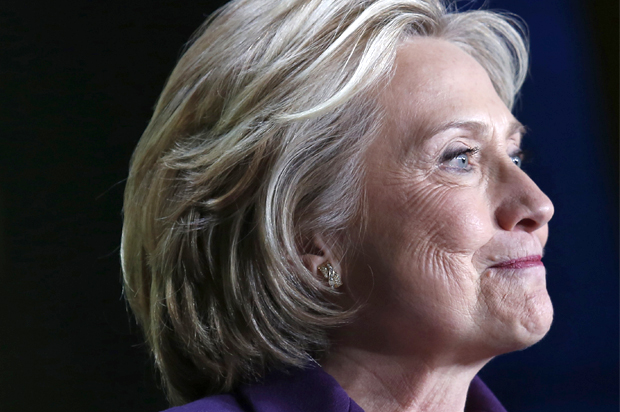Mark Leibovich has a smart piece in the New York Times magazine about what it really means to call Hillary Clinton polarizing. It’s a question worth exploring because boy oh boy do people love to call Clinton polarizing.
“Clinton has worn the polarizing badge more than any other politician since the word came into its unfortunate vogue, and she will undoubtedly continue to wear it if she runs for president in 2016,” Leibovich writes. “The word is so indelibly affixed to her that reporters sometimes ask her to check in on her current state of polarity, which is somewhat like asking people how popular they are, or how disliked they are, or how their hair looks without a mirror.”
To call Clinton polarizing also implies that polarizing is a thing that a person can be, like some kind of unfortunate personal character trait. But as Leibovich points out, Clinton isn’t herself polarizing so much as she happens to be a household name in an extraordinarily polarized political climate. The label, ultimately, is a moving target, but it does tend to land on Clinton more often than some of her peers. (Which is maybe why it ended up on a strange list of no-no words put out by a group that calls itself Clinton’s “super volunteers.”)
And that climate didn’t appear out of thin air. We created it. (Or, you know, we did build that.)
Back in February, I interviewed a political science professor at the University of Kansas named Patrick Miller about a research paper he co-authored called “The Partisan Warrior Effect.” At the time, I was interested in his finding that women, while partisan, were more open to hearing opposing viewpoints than men with similar ideological bents and tended to experience less anxiety at the idea of interacting with people from a political party other than their own.
But Miller’s research also has a lot to say about increased polarization among the electorate more broadly, and how, while voters may say they want to see less divisive candidates and more cooperation in government, they send the opposite message in how they vote, campaign and consume media.
“I think if we as citizens, regardless of gender, regardless of party, are going to condemn the system [as partisan and dysfunctional], we need to look at the role that we play in that and ask how much are we enabling that dysfunction,” he said. “And we’re seeing that all throughout our research, not just how we think of the other side, but what we think of compromise, how often we discuss politics with the other side, or any kind of group related phenomenon. We’re disengaging and we’re thinking about partisan politics much more symbolically than we are about issues, and that’s not very healthy.”
Miller’s description of our polarized climate matches much of what Leibovich describes in his piece. “We often hear that Clinton is ‘divisive,’ that she deprives us of the unity we supposedly crave (the thing George H. W. Bush, Bill Clinton, George W. Bush and Obama all ran on before they became so polarizing),” Leibovich writes. “And yet the climate is the climate.”
So what does it really mean to call Clinton polarizing? Probably that some people find her incredibly unlikeable. What else could explain regularly attaching the label to Clinton, a politician who has largely staked her reputation as a centrist with a conservative tilt, particularly when it comes to foreign policy. She may be a bomb-dropper, in the literal sense of war and peace, but it’s hardly her rhetorical style.
Compare Clinton to, say, Ted Cruz or Chris Christie, and it’s hard to make sense of how closely the term has come to be associated with her. Cruz forced a disastrous shut down (which he still defends) and Christie has made his tendency to be a total shithead a selling point for his presidential ambitions. These are both things that have gotten them called polarizing by the press, but the label doesn’t seem to follow them to the same extent it follows Clinton.
Clinton is politically adaptive. She’s thrived in a polarized political environment, but she didn’t create it, and she’s hardly among its worst offenders. But whether we’re talking about Clinton or Cruz, if we really want less “divisive” or polarized political figures, we should probably be looking, you know, inward, Miller told me.
“It’s easy for you to condemn politicians for engaging in compromising behavior, but average citizens — and it’s easy for us to throw stones — don’t have to have any actual responsibility ever for making government work,” he said. “We can sit here on the sidelines and scream ‘purity, stick to your principles, don’t compromise,’ as much as we want, but that doesn’t make government run.”

